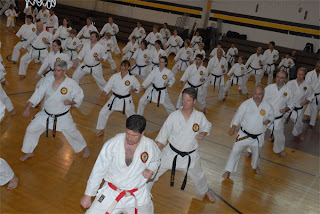
From agriculture, civilization followed and, with it, cities, writing, advanced technology, and political empires. Diseases spread more quickly in crowded conditions inadequate sanitation compounded the effects. With animal domestication, contagious diseases of pets and livestock adapted to new, human hosts. Local ecological disruptions became more numerous and widespread and more intense. As detailed by geographer and ecologist Diamond, 1997, Diamond, 2002, populations grew as agriculture developed, because larger sedentary populations both demanded and enabled more food production. Domestication of plants and animals enabled people to adopt a sedentary lifestyle. Instead of searching for food, they began to produce food.įood production changed the course of human and environmental history.

Then, about 10,000 years ago, people began to domesticate plants and animals. By 13,000 years ago, modern humans had spread to all continents and many islands across the globe. As humans became more efficient at exploiting their local environments, they spread farther. On several continents, for example, humans hunted large mammals to the point where many, such as the marsupial lion of Australia, went extinct. Sometimes their enhanced abilities to make a living outstripped their local environment’s capacity to provide that living, and they disrupted local ecological systems. On local scales, these modern humans were very much ecosystem engineers. At this stage, with relatively low population densities and limited technologies, humans were not ecosystem engineers.īy some 50,000 years ago, however, humans had learned to use fire and to cook their food they had developed complex tools, weapons, and language and created art. Sometimes they also experienced threats from their environment, including accidents, droughts, vector-borne diseases, and attacks from predators. These early humans, like other primates, made their living by seeking food and shelter from their environment, gathering plant foods, and hunting easy-to-kill prey. It took some 5 or 6 million years (My) for protohumans to spread from Africa to Asia and then to Europe. The human evolutionary line began in Africa about 7 million years ago (Ma). Understanding the nature and consequences of humans’ environmental impacts – and managing these impacts to protect the well-being of human society and other life on Earth – is humanity’s greatest challenge. As a result, over the past two centuries – barely more than two human lifetimes – humans have disrupted living and nonliving systems everywhere. Moreover, such effects unfold faster and on a scale far greater than any effects of past ecosystem engineers. Human effects since the Industrial Revolution – including many that may be invisible to a casual observer – are recent and outside the evolutionary experience of most organisms.

People, in contrast, have become ecosystem engineers on a whole new scale in time and space. Ecosystem engineers and their effects have long been part of evolving ecological systems. In evolutionary terms, changes like these brought about by living things, including ecosystem engineers, have been slow and incremental. African elephants convert wooded savanna to open grassland by toppling trees as they browse. Beaver dams alter the flow of rivers, increase dissolved oxygen in downstream waters, create wetlands, and modify streamside zones. Some organisms, like beavers and elephants, change their surroundings so much that they have been called ecosystem engineers. Even unusual or seemingly catastrophic events, like volcanic eruptions, are an integral part of the ecological contexts to which organisms adapt over long time spans.

Those that survive are molded by natural selection as the environment changes.

Over millennia, organisms evolve to contend with changes in their environment. All organisms change their environment as they live, grow, and reproduce.


 0 kommentar(er)
0 kommentar(er)
